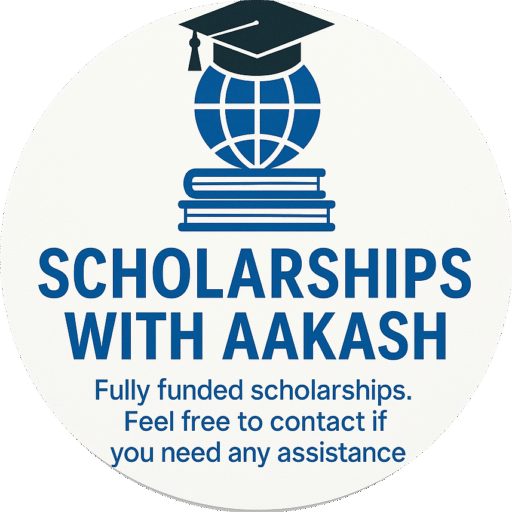🚀 Introduction
Warwick PhD Foundations of AI and ML – The Department of Computer Science at the University of Warwick is seeking exceptional researchers to join its Foundations of AI & ML program, beginning in October 2026 (or as soon as possible thereafter). This is your chance to work on the frontiers of machine learning, theoretical AI, and related fields under leading scholars in a world-class UK research environment.
In this post, we’ll explore:
- What makes this PhD opportunity special
- Core research topics you can work on
- Eligibility, application timeline, and process
- Funding, benefits, and partner schemes
- Tips for writing a winning application
- Frequently Asked Questions
- Final advice and next steps
If you’re serious about pushing boundaries in AI/ML theory or foundations, read on.
🧠 What Is “Foundations of AI & ML”?
The “Foundations of AI & ML” refers to the mathematical, algorithmic, statistical, and theoretical underpinnings that make artificial intelligence and machine learning possible and robust. Unlike application‑oriented work (e.g. building models for vision, NLP, robotics), foundational research tackles core questions such as:
- Learning theory and generalization
- Game theory and multi‑agent systems
- Reinforcement learning (multi‑agent, cooperative, adversarial)
- Distributional robustness, misspecification, and bounds
- Causality and inference under uncertainty
- Quantum information, diffusion models, new probabilistic frameworks
- Algorithm complexity, sample complexity, adaptation, etc.
- Connections to federated learning, graph models, combinatorial optimization
At Warwick, a PhD in this area means you can engage in deep theoretical work—developing new algorithms, proving guarantees, or designing new formal models. You might also combine theory with experimental validation, but the emphasis is rigorous thinking.
🏛 Why Warwick’s Computer Science Department?
Here’s why applying to Warwick’s Foundations of AI & ML PhD is compelling:
- Top-tier research environment
Warwick’s CS is well-ranked and strong in both theory and applications. The “Foundations” group is populated with faculty working in advanced, mathematically rigorous AI. - Synergy with CDT and scholarship schemes
Warwick has a Centre for Doctoral Training (CDT) in areas including Computer Science & Data Science. PhD students from these programs often get access to fully funded positions via university scholarships or CDT allocations. - Funding and resources
Many PhD candidates are fully funded: tuition, stipend, conference budget, access to computing resources, and research support. Warwick also awarded £11 million recently to a cross-disciplinary doctoral training center in computational modelling that cuts across AI, physics, chemistry, and engineering. - Interdisciplinary collaborations
Foundations of AI interlinks with statistics, mathematics, and other departments at Warwick. You may find joint projects, cross-department supervision, and strong computational infrastructure. - Strong doctoral training and academia/industry exposure
PhD students often publish in top venues, attend workshops, and gain visibility. Warwick emphasizes training in both theoretical depth and transferable skills.
📚 Research Topics & Themes You Can Explore
Here are example topic areas offered under this PhD call (you might propose something similar or adjacent):
- Learning Theory, Sample Complexity, Asymptotic Bounds
- Multi-agent & Game Theory (cooperative / adversarial settings)
- Reinforcement Learning (single-agent, multi-agent, hierarchical)
- Robustness, Distribution Shifts, Adaptation
- Graphical Models, Causality, Bayesian Inference
- Federated Learning, Decentralized Algorithmic Design
- Quantum Information & Diffusion-based Learning
- Complexity of Learning Algorithms, New Theoretical Frameworks
- Methods for Unlearning, Sparsity, Parsimony
- Algorithmic Guarantees, Regret Bounds, Minimax Rates
You may propose your own niche or hybrid direction, as long as it fits within the foundations space. Collaboration across theory + experimental validation is often valued.
🗓 Application Deadline & Process
Key Dates
- Internal application deadline: 14 November 2025 (to your department)
- Interviews: 27 & 28 November 2025
- Funding / Scholarship notification: December / January
- Start date: October 2026 (or soon thereafter)
The internal round is used to shortlist candidates. Top-ranked candidates will then be put forward for fully funded positions via the Computer Science CDT (deadline mid-January) and other prestigious university scholarships (deadline mid-December).
Steps to Apply
- Check eligibility & background
Ensure your prior degrees, grades, and research experience are strong. - Prepare application
- CV / academic transcripts
- Statement of Research Interests / Motivation (2–3 pages)
- Proposed research topics or direction
- Letters of recommendation
- Any prior publications or project work
- Submit departmental internal application
This involves uploading your materials into Warwick’s CS internal system by 14 November. - Interviews (if selected)
Shortlisted candidates will be interviewed by faculty in late November. - External Funding & Scholarship Applications
After internal selection, you may be nominated for CDT scholarships, departmental awards, or other university-wide funding. - Final Offer & Enrollment
Accept the offer, complete registration, and begin your PhD in October 2026.
If you require any help regarding your application, you can contact us at scholarshipswithaakash@gmail.com
💰 Funding & Benefits
Candidates selected through this pathway typically receive:
- Full tuition fees paid
- A stipend (living allowance) at prevailing UKRI / institution rate
- Research training support funding (conferences, travel)
- Access to computing clusters, labs, software licenses, datasets
- Mentorship, training, and professional development
Because this is a competitive internal nomination route, the financial package is designed to let you focus fully on research without teaching burden (or minimal teaching) in early years.
✅ Eligibility & Candidate Profile
You should ideally meet the following:
- Strong academic record (First-class, Distinction, or equivalent)
- Experience or interest in theoretical/mathematical research
- Background in mathematics, statistics, CS, or related fields
- Good programming / computational skills are helpful
- Ability to articulate a research proposal and motivation
- Excellent letters of recommendation from academics
A successful applicant often shows clarity of research direction, good grasp of theory, and capacity to learn independently.
🧠 Tips to Stand Out & Craft a Winning Application
- Align with faculty interests
Look at the list of faculty in the Foundations group, read their recent papers, and propose topics that connect. - Be clear and focused
A 2–3 page research proposal that states problem, methods, possible outcomes, and novelty is more impactful than a vague general one. - Show mathematical depth
Even if your background is applied, include rigorous proofs, examples, or theoretical thinking. - Highlight any publications / research experience
Even in undergraduate projects or internships, show your potential. - Strong letters of recommendation
Recommenders should speak to your ability to do research, think abstractly, and work independently. - Prepare well for interview
Expect technical questions, research motivation, and your goals over 5‑year horizon. - Backup plans & flexibility
Apply to multiple funding schemes or supervisor groups.
❓ Frequently Asked Questions (FAQs)
Q1: Are all PhD positions fully funded?
Not necessarily. Only positions via CDT or university scholarships may guarantee full funding. Others may require partial funding or external grants.
Q2: When will I hear back?
Shortlisted candidates are interviewed late November; offers are likely December or early January.
Q3: Do I need to contact a supervisor ahead of application?
It helps. Informal contact demonstrating interest can strengthen your application.
Q4: Is teaching required?
Usually minimal; early years focus on research. But you might assist with tutorials or marking later.
Q5: Can international students apply?
Yes. Warwick’s CS department typically accepts international PhD candidates.
Q6: What if I don’t get internal nomination?
You may still apply via external funding routes or departmental scholarships where possible.
📌 Final Thoughts & Next Steps
This PhD opportunity in Foundations of AI & ML at Warwick is ideal if you are mathematically inclined, passionate about theory, and aspire to push the boundaries of AI. The internal nomination structure means competition is tough, but the reward is a well-funded, research-intensive PhD position.
Your action plan:
- Decide your research interest niche
- Identify potential supervisors and read their work
- Draft a crisp research proposal and statement of intent
- Gather transcripts, references, and CV
- Submit internal application by 14 November
- Prepare for interviews
- If nominated, submit scholarship applications
🧑🎓 Author Bio

Mubeen Ali Niaz
Founder of ScholarshipsWithAakash.site
Mubeen curates top-ranked, fully funded scholarships for international students. With a strong background in global education and SEO, he helps students worldwide gain access to world-class research programs.
Stay tuned with Scholarships with Aakash — Where Your Academic Dreams Take Flight.
📢 Support Us on Social Media
If you find this helpful, support our work:
Website: scholarshipswithaakash.site
🔴 YouTube
🎵 TikTok
🧵 Threads
📲 WhatsApp Channel


Thanks for helping out, fantastic information.